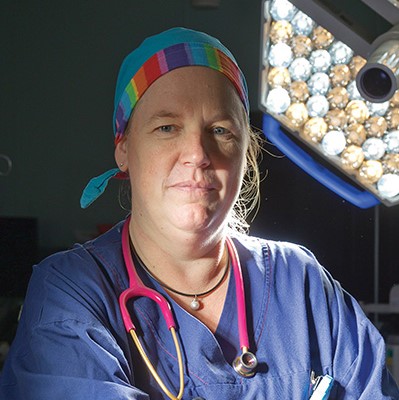Search
Research
Enhancing Anesthesia Research: The Imperative of Consumer Engagement Into Clinical ResearchBritta Regli-von Ungern-Sternberg AM FAHMS MD, PhD, DEAA, FANZA Chair of Paediatric anaesthesia, University of Western Australia; Consultant
Research
The impact of surgical cancellations on children, families, and the health system in an Australian paediatric tertiary referral hospitalReasons for elective surgery cancelations and their impact vary from one institution to another. Cancelations have emotional and financial implications for patients and their families. Our service has a particularly broad and geographically diverse patient population; hence, we sought to examine these impacts in our service.
Research
An observational study of hypoactive delirium in the post-anesthesia recovery unit of a pediatric hospitalHypoactive delirium is present when an awake child is unaware of his or her surroundings, is unable to focus attention, and appears quiet and withdrawn. This condition has been well-described in the intensive care setting but has not been extensively studied in the immediate post-anesthetic period. The aim was to determine if hypoactive emergence delirium occurs in the recovery unit of a pediatric hospital, and if so, what proportion of emergence delirium is hypoactive in nature.
Research
A comparison of videolaryngoscopy using standard blades or non-standard blades in children in the Paediatric Difficult Intubation RegistryThe design of a videolaryngoscope blade may affect its efficacy. We classified videolaryngoscope blades as standard and non-standard shapes to compare their efficacy performing tracheal intubation in children enrolled in the Paediatric Difficult Intubation Registry.

The Perioperative Medicine team has developed a unique chewable tablet that gives the child the sensation of having a full stomach, without compromising their fasting regime.
Research
Numerical simulation of aerosolised medicine delivery through tracheostomy airwaysThe administration of inhaled antibiotics to patients with upper or lower respiratory infections is sometimes conducted via a tracheostomy airway. However, precise dosing via this route remains uncertain, especially in spontaneously breathing paediatric patients.
Research
Improving Outcome Reporting in Paediatric Airway Management in Clinical Trials (IMPACT): A Study Protocol for Core Outcomes and Clinical EndpointsAlthough clinical trials are fundamental to advancing evidence-based practice, significant heterogeneity in outcome reporting poses a considerable challenge to the validity of systematic reviews. This inconsistency impedes the ability to compare, synthesise and interpret research findings effectively. In the field of paediatric airway management, this issue is particularly relevant because of the low incidence of critical events and the related high morbidity and mortality. The issue of inadequate and variable outcome reporting in clinical trials has been widely acknowledged, necessitating initiatives to enhance the quality of future research.
Research
Health literacy scale for English-speaking children: translation and validation of the HLS-Child-Q15-ENTo translate and validate the HLS-Child-Q15, a relatively short questionnaire for assessing health literacy in children originally validated in German, into English to make it accessible to a large population of English-speaking children.
Research
Feasibility of the pre-operative measurement of fractional exhaled nitric oxide and respiratory mechanics to predict respiratory outcomes in children undergoing general anaesthesiaPeri-operative respiratory adverse events remain a major cause of morbidity and mortality in children undergoing general anaesthesia; those with asthma are at higher risk. The aim of this feasibility study was to determine whether pre-operative measurements of fractional exhaled nitric oxide and the forced oscillation technique are feasible in children, and to explore whether these measurements can predict peri-operative respiratory adverse events.
Research
Topical Lidocaine During Airway Manipulation in Pediatric Anesthesia: A Systematic Review and Meta-AnalysisLidocaine is widely used in pediatric anesthesia for airway topicalization to modulate undesirable airway and circulatory reflexes, yet its effectiveness remains unclear. Therefore, we aimed to perform a meta-analysis evaluating the impact of topical lidocaine on respiratory adverse events in children undergoing airway management.
